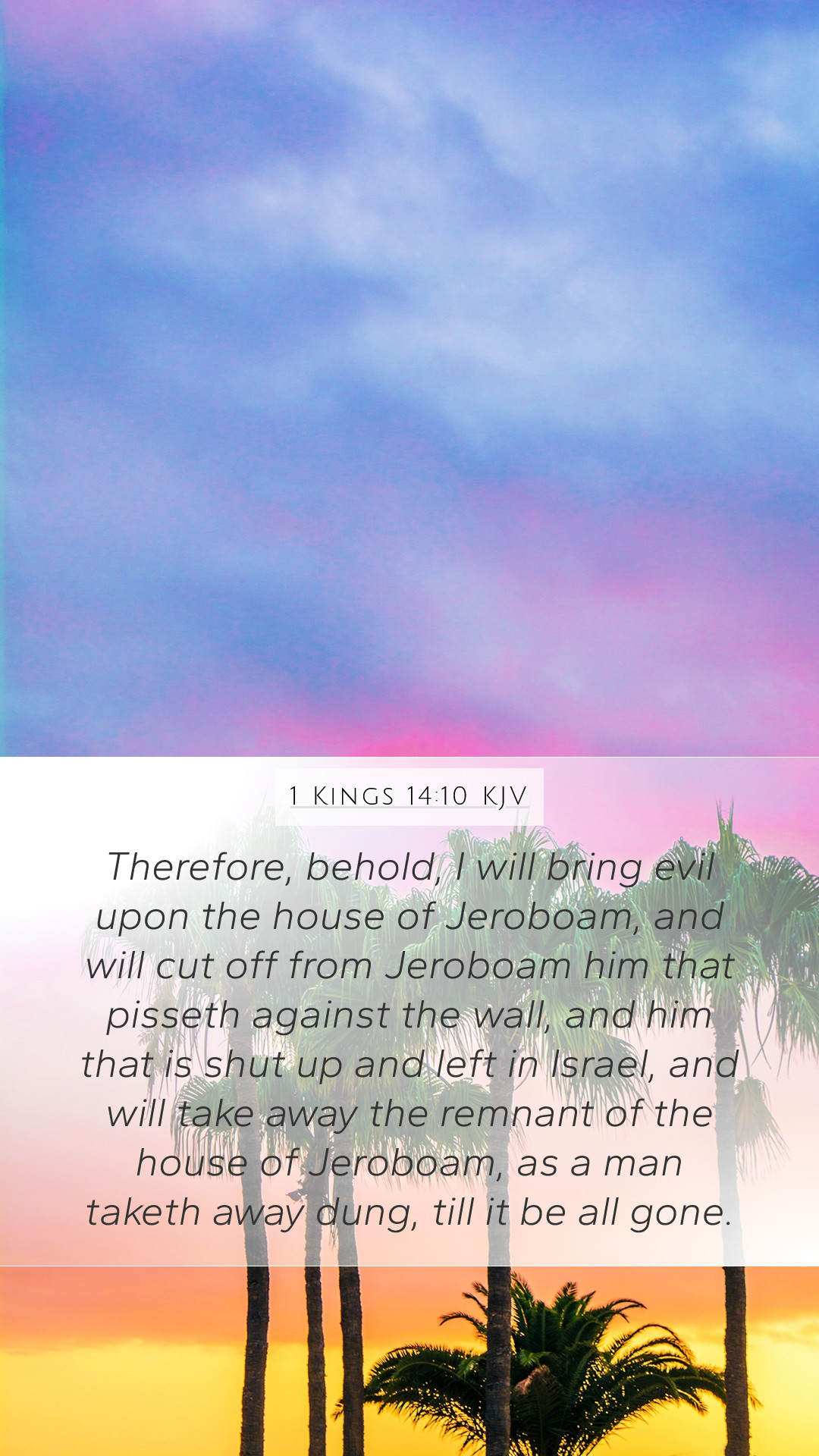Meaning of 1 Kings 14:10
The verse presents a prophetic judgment declared against Jeroboam and his lineage due to their sinfulness and idolatry. This prophecy embodies both a literal and metaphorical destruction, indicating a complete removal of his influence and legacy.
Historical Context
This verse is set during a turbulent time in Israel's history, where Jeroboam, as the first king of the northern kingdom, led the people into sin by establishing worship of golden calves. The historical context reveals a nation divided and idolatrous, straying from the worship of Yahweh.
- Divine Retribution: The phrase "bring evil" signifies divine retribution for unfaithfulness to God.
- Cut Off: "Cut off from Jeroboam" suggests complete eradication, reflecting the seriousness of his sins.
- House of Jeroboam: Refers to his dynasty and the stark warning that his family line will not continue.
Commentary Insights
According to Matthew Henry, this prophetic declaration illustrates God's judgment vividly, particularly in how it articulates the totality of Jeroboam's house being cut off. Henry emphasizes the potency of God’s word as a warning to those who lead others astray.
Albert Barnes elaborates on the figurative language used to depict destruction: the imagery of "pisseth against the wall" is a crude but emphatic way to describe a total eradication of any male descendant who could inherit the throne, underscoring the idea that their lineage is unworthy before God.
Adam Clarke refers to this judgment as indicative of the consequences of idolatry, urging readers to understand that God's patience has limits. Clarke's analysis highlights the necessity of fidelity to God, and the severe repercussions of ignoring divine commandments.
Theological Implications
This text serves to remind believers of the seriousness of sin and the importance of fidelity to God's commands. It warns of the consequences of leading others into idolatry, an essential theme throughout Scripture.
Furthermore, the fulfillment of this prophecy is evident in the subsequent downfall of Jeroboam’s dynasty, illustrating God's authority and the ultimate reality that sin leads to judgment.
Practical Application
For contemporary believers, this verse serves as a cautionary tale regarding leadership and influence. Those in positions of authority must recognize the weight of their responsibilities—leading others towards righteousness rather than idolatry.
In Bible study groups, this passage can inspire discussions on the nature of God’s justice and judgment, as well as personal accountability in the lives of believers today.
Cross References
- 1 Kings 13:34 - God's anger against Jeroboam's sin.
- 2 Kings 10:10 - The fulfillment of God’s promise against Jeroboam’s house.
- Hosea 1:4 - Prophecy concerning the house of Jeroboam.
Conclusion
In summary, 1 Kings 14:10 conveys a prophetic word of judgment from God against Jeroboam's household for their persistent idolatry. The insights from respected commentators highlight the gravity of sin and the certainty of divine retribution, encouraging believers to seek deeper understanding through Bible verse meanings and interpretations. This serves as a poignant reminder for both individual faithfulness and communal integrity within the faith community.


